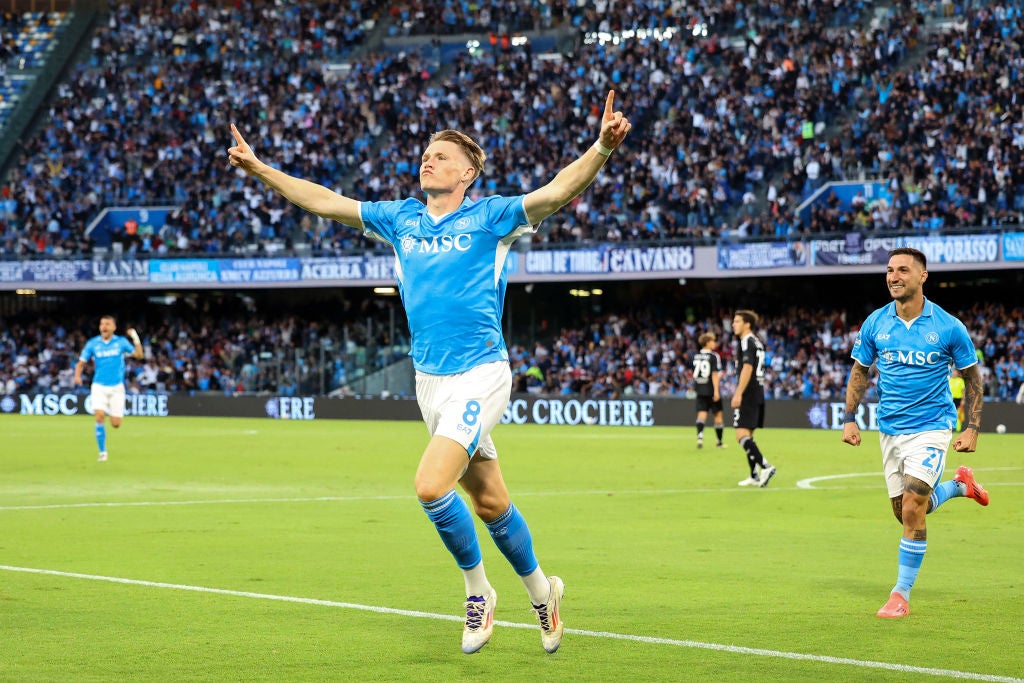Football
Scotland’s injury crisis reveals a deeper problem

It would be hard not to feel for Steve Clarke, as the beleaguered Scotland manager leant back in his chair and looked up at the board of absentees in his office. Of the 30 to 40 players considered for selection, the list contained an entire line-up of injured players, a sidelined XI. And this is ahead of two matches against top-level opposition in Croatia and Portugal, all while Scotland are in the midst of their longest winless run in their history.
It’s not a rosy picture. Clarke’s assistant, John Carver, admitted Scotland “might have to suffer” some more in the Nations League, with promotion to League A coinciding with a tough run of luck and a dire loss of form following a difficult summer at Euro 2024. Scotland certainly suffered late heartbreak last month against Poland at Hampden and Portugal in Lisbon, conceding the losing goals in the 96th and 87th minute respectively.
Scotland’s injury list
John McGinn, Angus Gunn, Kieran Tierney, Aaron Hickey, Nathan Patterson, Jack Hendry, Scott McKenna, Greg Taylor, Lewis Ferguson, Lawrence Shankland, Ross McCrorie, Tommy Conway
Scotland head to Zagreb having lost five and drawn three of their last eight competitive matches. Including friendlies, Scotland have won just once in their 14 games – and that was against Gibraltar in a warm-up fixture before the Euros. Scotland’s lowest moment in Germany was the opening thrashing to the hosts in Munich, but the late goal Clarke’s side conceded in the 1-0 defeat to Hungary has now been followed twice more in the Nations League.
A theme of Scotland’s dismal run is the Tartan Army’s misery has often been compounded by more, much like Clarke’s dejected squad departing their hotel in Bavaria to the jolly, unbeat tune of a local oompah band. This week, the Scotland coaching staff have been dismayed by the injury pile-up facing the squad. Vice-captain and talisman John McGinn is one of at least 12 players unavailable due to injury. Scotland’s squad is down to its bare-bones, with a 41-year-old Craig Gordon also recalled after seemingly announcing his retirement in June – and set to feature after an injury to Angus Gunn.
Clarke’s defence has been hit, leading to first call-ups for Aberdeen full-backs Nicky Devlin and Jack MacKenzie, as well as Preston centre-back Liam Lindsay. West Ham midfielder Andy Irving has also received his first international selection, three years after leaving Hearts to sign for Turkgucu Munchen, a club from the third-tier of Germany’s Bundesliga. Yet, if Irving’s unlikely rise to the Scotland squad after two seasons at Austria Klagenfurt and three substitute appearances for West Ham, totalling 32 minutes, could well be portrayed as a feel-good tale, it also reflects a lack of options at Clarke’s disposal.
Such a reality goes beyond Clarke, and asks questions of the Scottish Football Association. Scotland had the oldest squad at Euro 2024 and it was evident even before this injury crisis that new blood would eventually be needed once the core that has qualified for successive European Championships begins to be phased out. Instead, Scotland’s injury crisis has highlighted a severe lack of depth that those appearances at the Euros rather glossed over. As a measure, only nine Scottish players have appeared in the Premier League this season. Rewind two decades and you would find at least 30 plying their trade in the English top-flight.

Scotland may be looking to the future in one sense. The decision to send the Rangers midfielder Connor Barron, who has settled impressively at Ibrox this season, to the Under-21s reflects a wider objective. Scotland have two must-win games against Belgium and Kazakhstan to reach a play-off for next summer’s European Under-21s Championship, a tournament they have not qualified for since 1996. Max Johnston, another to be involved in the senior side last month, and the exciting Motherwell winger Lennon Miller, the Premiership player of the month for September, have also been named in the Under-21s squad.
Against Croatia and Portugal, Scotland may rely on Scott McTominay even more. Thankfully, Scotland’s most important player has survived the injury emergency. The midfielder’s form for the national team and inspired start to life at Napoli is a positive amid the dark gloom. McTominay has already scored twice in Italy since his move from Manchester United, with Antonio Conte immediately placing him into a key role for the Serie A leaders. He has earned the nickname “jolly” from the Italian media, with his versatility and range in midfield compared to Napoli’s “joker” in Conte’s deck of cards.

The future of Scotland’s squad, too, may be developed outside of the British isles. McTominay and Billy Gilmour are looking to follow the success of Bologna’s Lewis Ferguson in Italy, the midfielder who is yet to return for Scotland having suffered an ACL injury before the Euros. There is recognition that talent can go elsewhere and perform at the elite levels, now it is seemingly being squeezed out of the Premier League.
For now, Clarke and his patched-up team are desperate for a win, or a swift relegation back to Nations League B looms. But for Scotland, there is now no hiding from the fact that their biggest problem was the one hiding under the surface all along.










